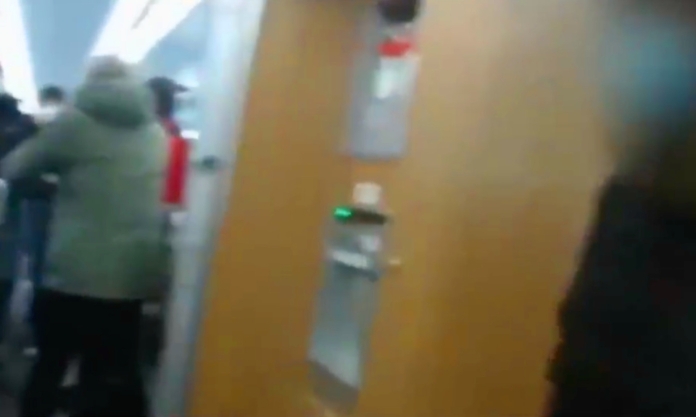Going by the inescapable and somewhat scary announcement “kindly” informing passengers on high-speed trains in China that smoking is strictly prohibited, the answer is surely “something serious”. And so it is, as two young men on a train to Nanjing recently found out.
On 23 February, the C426 train departed Qidong City in eastern Jiangsu Province, as it does every day, at 14:00, for a 17:42 arrival at Nanjing Railway Station.
Yet, that day’s journey was going to be different. And it all began at Yangzhou Railway Station, where two men boarded the train.
Guo Minghui of the Nanjing Railway Station Police Station spoke with The Paper in a video report published today, 4 March, and explained what happened next.
Suddenly, the toilet smoke alarm in the train’s carriage number six sounded. That event immediately triggered an automatic deceleration of the train.
The C426 service is operated by China’s recently-introduced, green, high-speed trains, which, with a maximum speed of 160 kilometres per hour, are not actually so fast.
When the smoke alarm was activated, the train was travelling at 158 kilometres per hour. The automatic deceleration brought it to 113 kilometres per hour, where it remained for 2 minutes.
During this time, one of the train’s attendants rushed to the carriage in question, where she witnessed smoke coming from toilet’s ventilation grille and some cigarette ash on the floor. The attendant knocked on the toilet’s door and informed its occupants that the game was up.
As within their rights, staff then unlocked the toilet door from the outside and discovered the two men smoking within. It was also found that the pair had earlier been drinking beer on the train.
The two were fined ¥600 each and placed on China Railway’s credit blacklist. As such, they have been banned from taking a high-speed train for 180 days.









